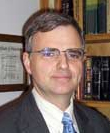 “A joyful heart is good medicine, but a broken spirit dries up the bones.” -Proverbs 17:22
“A joyful heart is good medicine, but a broken spirit dries up the bones.” -Proverbs 17:22
This is one of many passages in Proverbs that helps us view depression, discouragement, and despair from God’s perspective. We have been looking at these in this series of studies. The Hebrew word translated medicine does not refer to medication per se. This is the Hebrew causative verb form which means it causes healing. Since medicine is for healing it is proper to translate Prov. 17:22 as you read it above, and be encouraged that a joyful heart is good medicine!
Medicine properly prescribed and consumed has been a good gift of God to bring healing. Medicine does not displace miracle, because God has the power to directly intervene apart from human means. Medicine does not reign over Scripture truth either, because divine revelation is redemptive and saves us from the effects of sin in body and spirit.
Dr. Martyn Lloyd-Jones left the medical profession in 1927 to preach and pastor until his retirement in 1968. He had the advantage of being able treat the whole man, as medicine remained his “hobby” and he often spoke and wrote on the subject of healing and the Scriptures. When troubled or nervous people came to him, he sought to determine whether their trouble was 1.) a physical problem, 2.) a spiritual problem resulting from an erroneous interpretation of Scripture or lack of assurance or things like these, or 3.) a psychological or mental problem. He explains his view that a person with a spiritual problem is generally responsive to God’s word and Spirit, while the person with the mental problem is often not. He offers William Cowper, who was a dedicated Christian man and poet who had periodic attacks of a mental condition, as an example of the last category.1 Lloyd-Jones is criticized for asserting a category of mental illness, and men who assert that all mental illness is the result of sinful actions are also criticized for not acknowledging real cases. However, in his classic book on spiritual depression, “The Doctor” addresses a vast array of Christian truths calculated to bring healing.2 Clearly he saw that the ultimate solution to non-physical maladies is the Gospel. He also taught that the Gospel aids physical healing.
Mental illness may be a reality, but it is also over-diagnosed. It may not be completely accurate to insist that all mental problems are the result of sin, though many no doubt are. Much good and balanced work is being done by Christians in this field. Welch begins his study on depression by recommending these simple steps: “Understand what people mean by ‘depression.’ Distinguish between spiritual and physical symptoms. Address heart issues and personal suffering. If physical symptoms are excessive, consider medical treatments known to possibly alleviate the symptoms.”3
Medication for depression is readily available. People should carefully consider the implications and side effects of depression medicine4 on the one hand, and the Scriptural teaching on spiritual depression on the other, reminding themselves that the God who created us knows us altogether; He knows what we need, He is the Great Physician, Christ came healing men with the Gospel, and the Holy Spirit transforms our spirits by His indwelling presence.
Prov. 17:22 has three main parts to it which I will mention here and develop in the next article.
1. The Painful Condition: The broken spirit is depression in all of its forms major and minor. The dried-up bones refer to the weakening of the physical frame which results from the broken spirit.
2. The Healing Agent: A joyful heart is the medicine God provides. This stands in contrast (not denial) to all substances used to effect healing. This medicine is clearly the most important and should be sought after with all spiritual diligence.
3. The Healing Process: The healing of spiritual depression is a process, not a quick fix.
See the other articles on depression in this series, as well as the other Proverbs studies.
Notes:
1. Dr. Martyn Lloyd-Jones, Healing and the Scriptures (Nashville, Thomas Nelson, 1988), 148-156.
2. Dr. Martyn Lloyd-Jones, Spiritual Depression (Grand Rapids, MI: Eerdmans, 1984).
3. For example, see Edward Welch, Blame It on the Brain? (Phillipsburg, NJ: P & R, 1998).
4. One website listing depression medications listed over 2 dozen different adverse side-effects resulting from these medications, a factor that is often under-played.
This article has been reposted with permission from http://cbclumberton.com/2013/04/24/depression-meds-available-i/.
